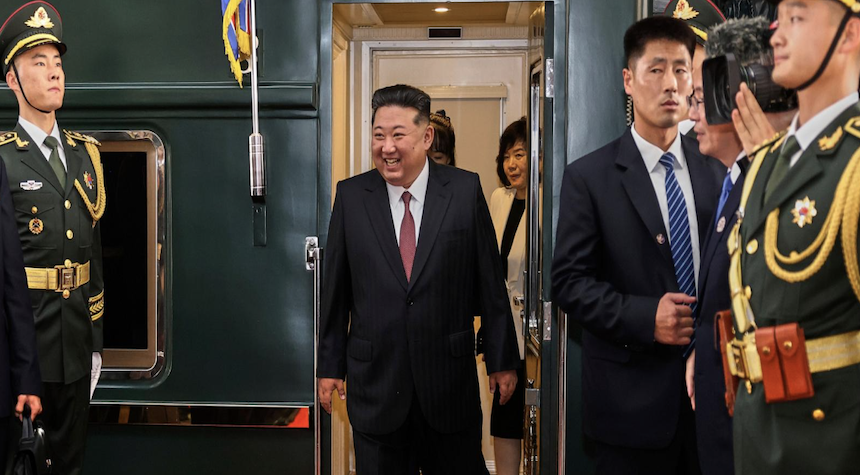North Korean leader Kim Jong Un has arrived in the Chinese capital. Beijing by train, crossing the border from North Korea on Tuesday. According to the Korean Central News Agency, Kim is set to join Chinese President Xi Jinping and Russian President Vladimir Putin for a military parade marking the 80th anniversary of Japan’s surrender in World War II.
Kim is accompanied by a delegation including North Korea’s Foreign Minister Choe Son Hui. President Xi has just hosted world leaders, including Putin and Indian Prime Minister Narendra Modi, at a Shanghai Cooperation Organization meeting in Tianjin. This convergence of leaders occurs against a backdrop of international concern over the collaboration between North Korea, China, and Russia in relation to Moscow’s ongoing military actions in Ukraine.
You May Also Like: Israel Recovers Bodies of Two Hostages in Ongoing Crisis
Putin’s top foreign policy aide, Yuri Ushakov, has confirmed that an invitation has been extended to Kim for a bilateral meeting on the sidelines of the parade. This comes as Ukrainian and Western governments have accused North Korea of supplying ammunition and troops to support Russia’s military efforts, while China has been identified as a key source of material support for Moscow.

Putin and Xi met on Tuesday morning, reportedly signing more than 20 bilateral cooperation documents. These include agreements between Russian and Chinese state energy corporations, as well as memorandums on space and science research collaboration.
Putin’s recent statements at the SCO meeting reiterated Russian narratives about the origins of the conflict in Ukraine, attributing it to Western actions. Meanwhile, Indian Prime Minister Modi also met with Putin, discussing bilateral cooperation in various sectors. This meeting occurred shortly after the United States imposed additional tariffs on Indian goods, reportedly in response to India’s continued trade with Russia.
The evidence suggests that these high-level meetings and the military parade in Beijing may have significant implications for international relations and the ongoing situation in Ukraine. As always, we will continue to monitor these developments and report on their outcomes as more information becomes available.

